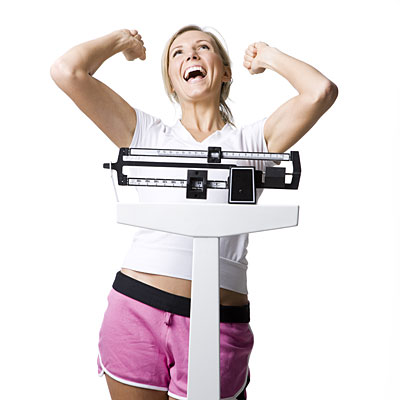Ragged to Rejuvenated
As with mot health conditions,
the first
step to reversing relentless fatigue is recognizing it and recognizing
that
it’s bad for you. “Getting too little rest is like ingesting a toxin,”
explains
Robert J. Hedaya, M.D., founder of The National Center for Whole
Psychiatry in Chevy Chase, Maryland. “There isn’t a single bodily
function that isn’t affected. Your
nervous system becomes disregulated. You can lode muscle mass. You lose
sex
drive.” “Chronic tiredness also affects your immune system, making you
more
susceptible to colds,” adds Lombardo. “When you’re sleep deprived,
you’re more
likely to gain weight. And research has found that driving while
exhausted can
be as hazardous s driving drunk. Think about it : Sleep deprivation is
used to
torture prisoners in captivity, and yet we do it to ourselves on a
regular
basis.”
Still not convinced it’s time to own up to
your exhaustion features are also symptoms of depression,” says Olson. “A
cardinal sign for both is the inability to experience feeling. I worry that
some women are being diagnosed with depression when really they’re just worn
out.”
Most of the signs of exhaustion are obvious:
You’re likely well aware that shunning shut-eye can make you look and feel like
a zombie. You’ll also obviously have less energy, and you might find yourself
being bitchy or overemotional, says Lombardo. Exhaustion can lead to arguments
with your partner and the inability to finish projects at work. In other words,
it puts you way off your game.
It’s time to make chilling out a priority.
“ Right now, we give ourselves medals for the number of hours we spend working
and not sleeping,” says Lombardo. “Be proud of yourself for getting rest. Maybe
that’s not something you’d brag about to your friends, but when you’re
energized, everything changes.” Start by taking these easy steps:
Choose to snooze. Most adults should log seven to nine hours of sleep every night. Hit
the sheets at around the same time each evening, says Sharkey. “If you vary
your bedtime-even by 30 or 60 minutes- your circadian rhythms get out of whack
and you’ll feel like you have jet lag every Monday morning,” she says.
Eat for energy. Kicking off the day with a meal that lacks nutritional value-ahem,
that sugar-packed muffin and latte-puts a dent in your metabolism and sets you
up for exhaustion later, says Hedaya. Make sure your breakfast includes around
20 grams of protein and some healthy fat, both of which help keep your energy
up. Try some peanut butter or a handful of almonds stirred into low-fat yogurt.
Get your head out of the game. No, meditation is not a New Agey time waster. An a.m.om session
can be highly relaxing and may straighten out taxing mental disarray.
“Meditating in the morning can help clear your mind so that you can then do
things faster and with more focus,” says Lipman. “You can actually end up with
more time.” Aim for 20 minutes of quiet reflection before or after breakfast.
Be crafty.
Remember that achievement high? You don’t need to log 18 hour days at work to
find it. Outside hobbies and passions yield the same effect. “I call this
creative compensation,” says Mandel. “It ends up being restorative, because you
are accomplishing something that’s just for you.” Think about what’s appealing
to you-cooking, writing, painting-and devote an hour or two to it each week.
And try to surround yourself with pals who live more balanced lives and soak up
their perspectives. Together, you can aim to ditch your exhaustion acceptance.
Five sneaky energy suckers

Your extreme fatigue might be coming from
hidden sources. Nixing these spirit-depleting factors from your life will
automatically help reboot your verve.
- DEHYDRATION
It turns out that
even moderate dehydration (which results in the loss of 3 percent of your body
weight) can make you feel mentally sluggish and mess with your concentration,
The next time you’re feeling foggy or lightheaded, don’t just assume you’re in
serious need of some food. Try downing a glass or two of water.
- CELL PHONES
Checking your
cell before bed amps up brain activity, making it harder to doze off. Plus, any
electronic gadget’s artificial blue light can suppress the sleep hormone melatonin.
A 2011 poll by the National Sleep Foundation found that 20 percent of people
ages 19 to 29 are awakened by a call, text, or e-mail at least a few nights a
week. Power it down well before bedtime.
- MEDICATION
Many drugs have
veiled energy-sapping side effects. Chief among them are ome classes of
antidepressants and certain beta-blockers used to prevent migraines or treat
high blood pressure. If you start a new med and feel more lethargic than usual,
see your doctor for an alternative. (If there isn’t one, take your dose right
before bed.)
- OVERTRAINING
While working out
zaps the stress hormone cortisol, prolonged sweat sessions-like, for example,
regularly running for more than 30 minutes at a steady rate-can actually rev
cortisol production, Interval training (bursts of intense activity) combined
with strength training (free-weight and body-weight moves) helps keep cortisol
in check.
- LOW IRON
The mineral
shuttles oxygen around your body and removes waste from your cells. If you’re
not getting around 18 milligrams a day, your body struggles to function
properly and you can feel worn out; low iron levels in your diet can cause iron
deficiency anemia. If you feel sluggish, ask your doctor for a simple blood
test to see if you should be takinga supplement.